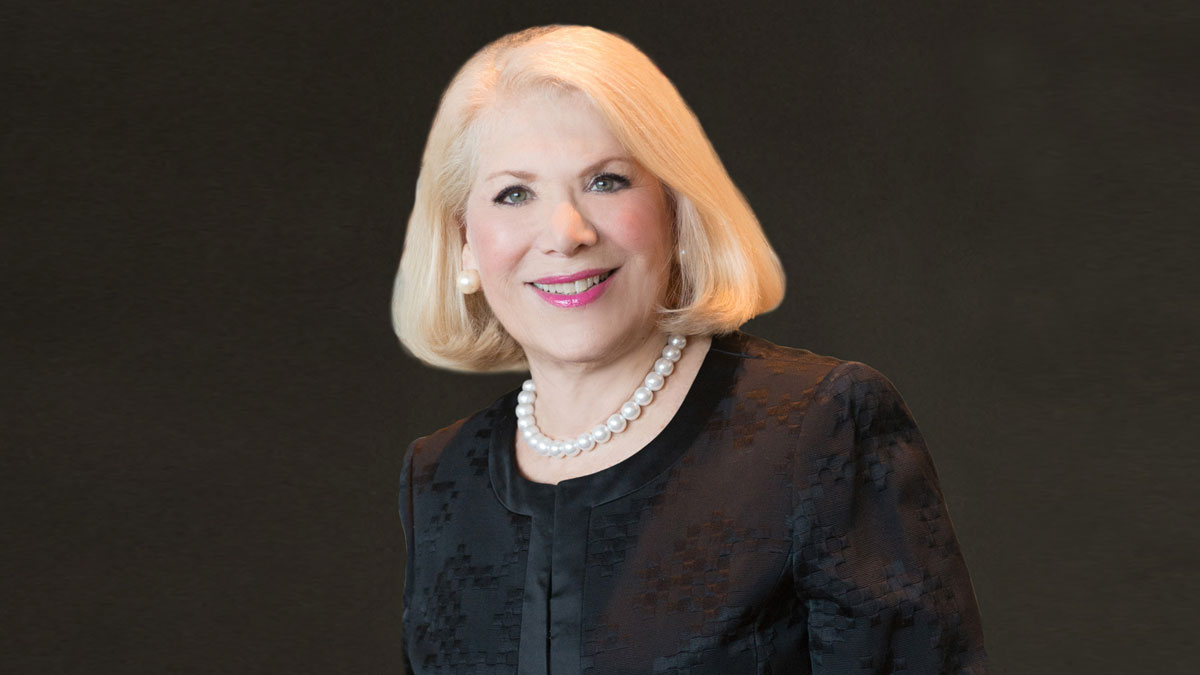
September 26, 2023
Former Watergate prosecutor, MSNBC legal analyst to discuss pioneering career in SIU Law’s Lesar Lecture
CARBONDALE, Ill. — Former Watergate prosecutor Jill Wine-Banks will discuss her pioneering career and the barriers that women are still facing when the author, businesswoman and MSNBC legal analyst presents the Hiram H. Lesar Distinguished Lecture on Oct. 4 at Southern Illinois University’s School of Law.
Wine-Banks’ presentation, “Breaking Barriers for Equality, But Still Dancing Backwards in High Heels: How Women’s Success Benefits All,” is at 5:30 p.m. in the Lesar Law Building Auditorium. This is the 26th lecture in the series established to honor founding Dean Hiram H. Lesar. A reception starts the festivities at 5 p.m. in the law school’s formal lounge. The event is free and open to the public.
“Jill Wine-Banks is a trailblazer,” School of Law Dean Camille Davidson said. “She recognizes all we have accomplished as women, while also being aware there are still too many ‘firsts’ taking place in 2023. We look forward to her insights as our school of law celebrates 50 years of serving the public good.”
Davidson added that Wine-Banks’ visit fits with the university’s Imagine2030 strategic plan and its pillar of diversity, equity and inclusion.
A graduate of the Columbia University School of Law, Wine-Banks began her career as the first woman to serve as an organized crime prosecutor with the U.S. Department of Justice in Washington, D.C. At just 30 years old, Wine-Banks’ trial capabilities and win record resulted in her selection in as the only woman among three assistant Watergate special prosecutors in the obstruction of justice trial against President Richard Nixon’s top aides. Wine-Banks was a major player in the Watergate tapes hearing, where she cross-examined Rose Mary Woods, Nixon’s secretary, about the 18½ minute gap in a key White House recording.
Media availability
Jill Wine-Banks will be available for interviews prior to the lecture. To arrange for interviews, contact Carly Holtkamp, director of external relations, SIU School of Law, at carly.holtkamp@siu.edu or 618-453-8312.
While the barriers for women in the legal profession are not as prevalent as they were in the 1970s, Wine-Banks said that without passage of the Equal Rights Amendment “women in all professions and as homemakers face discrimination and will never be equal.”
“Most discrimination today is more subtle, so it's harder to fight and easier to ignore, but the Equal Employment Opportunity Commission now exists, women support each other more and the numbers are too large to ignore now,” she said. “When I started, few women were in any profession. Only 4% of all lawyers were women, and almost none of those were litigators, so I had to make up the rules.”
Wine-Banks’ career after the Watergate case included private practice in Washington, D.C., and then being named general counsel of the U.S. Army by then President Jimmy Carter. After returning to private practice as a partner at Jenner and Block, Wine-Banks was appointed Illinois’ first solicitor general and later the state’s first female deputy attorney general, where she argued cases before the U.S. Supreme Court and Illinois Supreme Court. Wine-Banks was the first woman appointed executive vice president and chief operating officer of the American Bar Association and had a corporate career with Motorola and Maytag.
Wine-Banks, author of the 2020 book “The Watergate Girl: My Fight for Truth and Justice Against a Criminal President,” said she hopes those who attend the lecture will see “where we were, where we are, where we have to be and be motivated and inspired to help us get there. Both in terms of the ERA and speaking up to get what you want and deserve.”
Watergate and the impeachment of President Donald Trump have many similarities, she said.
“Both were based on evidence presented in congressional and impeachment hearings. In one of Trump’s cases, the conduct was seen on television in real time,” she said.
There were a few lessons learned from Watergate, Wine-Banks said, including that “our country can survive crime in the Oval Office and upper echelons of government; that the pardon of Nixon by President Gerald Ford was not best for the country and its future” and that “agreed facts and bipartisanship are important.”
